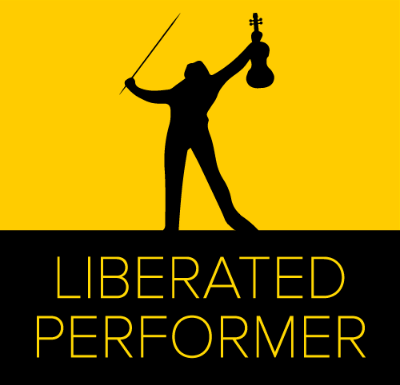Success Stories
•Tenured member of the Edmonton Symphony Orchestra
•Member of Quatuor Bozzini
•Tours throughout Canada, USA, Europe, and Japan
•Graduated from McGill and Yale
Why is it important to do Liberated Performer?
I believe it is really important to do psychological and sociological analysis in order to facilitate the positive feedback of getting liberated as a performer: perform -> assess what went well -> perform -> reassess, etc. I really appreciate how the program focuses on the many aspects of performing and preparing for performance – there are so many contributing factors to these activities: both mental and physical preparation in practice and just before a performance, self-esteem examination which influences both performance and preparation, and motivation – which may influence the self-esteem part.
What was the most important part of Liberated Performer?
The amount of self-awareness that comes as a result of the program really helps define how I view myself as a performer, how I have improved musically, technically, and as a communicator of music. Life is never black-and-white and situations are never black-and-white, which is why I appreciate when the program sets up hypothetical scenarios to see how I would prepare for and react to them. It also helps me prioritize my values in different performance situations so that I know how to psychologically prepare for performances and for any ‘backlash’ or disappointment following such events, ie. Recitals vs. auditions.
What was most powerful about Liberated Performer?
Articulating cause of insecurities helps define the challenge so that I can work towards changing my attitude about it – for example, why am I concerned about other peoples’ feedback about my performances? Is it because I need the ego boost, or am I assessing the effect of my musical communication, and thus, improving my subsequent performances from this feedback?
How has this program affected your life?
In all, this program has been very useful for me to reaffirm the reason why I love and continue to do music, and has helped me articulate ideas that have been useful for my own students as well as in discussions with other colleagues. This is the real deal.
---
To follow Alissa, check out her concert season by clicking here!
•Associate Principal Second Violin of the New York City Ballet Orchestra
•Section First Violinist with the New York City Opera Orchestra
•Bachelor’s and Master’s degrees from the Juilliard School
Why did you sign up for Liberated Performer?
I've struggled with performance anxiety for quite some time, particularly for orchestral auditions.
With your decades of performance experience and knowledge, did you find Liberated Performer valuable?
I've read many books and taken other courses, but Liberated Performer still exposed me to many ways of thinking about the problem that I'd never thought about, including excellent tips on how to physically and mentally practice your instrument more effectively.
How has Liberated Performer affected you?
Since working with Coach Cory, I've been able to play much more confidently and effectively in high pressure situations. I feel more confident then ever before!
Want to see Conway live?
Click here for the NYC Opera and Click here for the NYC Ballet
•Member of NYO-USA 2017, 2018
•Austin Civic Orchestra
Why did you want to sign up for coaching sessions?
Ever since I started performing my instrument in front of people, I've always had issues with nerves getting in the way of my best playing. Despite my preparations, as soon as I would step up to perform, my hands would start to shake and I would lose all the expressive nuances that I had perfected in the practice room. After years of this vicious cycle, I decided it was time to get a grip on my performance anxiety.
How would you describe Liberated Performer to someone who has never been?
For me, Liberated Performer felt like a series of private lessons where the primary focus of each lesson was to find new ways to look at both performing and practicing. It helped incorporate several routines into my daily practice so that I can address my performance anxiety.
What parts of it were most powerful?
The first time Coach Cory tried to make me sing my music, I was shocked. As a high school bassist, I had never in my life been forced to sing in front of anybody. I knew my voice would sound horrendous, so I was too embarrassed to let loose. However, Coach Cory wasn't going to let me do anything else until I had sung my part how I wanted to play it. While my first few tries were meek and uninspired, I began to feel more comfortable singing my piece. When I finally picked up my bass, it was no longer nerve wracking to perform the music.
What are the changes you have noticed in yourself since the coachings?
I've noticed at competitions and performances I now get much less flustered when I play, and I feel much more confident in expressing my musical ideas to other people through my performance.
If you saw a friend at a point in their life where they were feeling anxiety, struggling to reach their performance goals, or just not fulfilling their potential, would you recommend coachings to them?
I would absolutely recommend coaching to any high school students who struggles to perform at their full potential. These sorts of issues are best addressed as soon as possible so that you can be performing and practicing at your absolute best.
Want to see Pablo live? Click here for the National Youth Orchestra's Schedule



